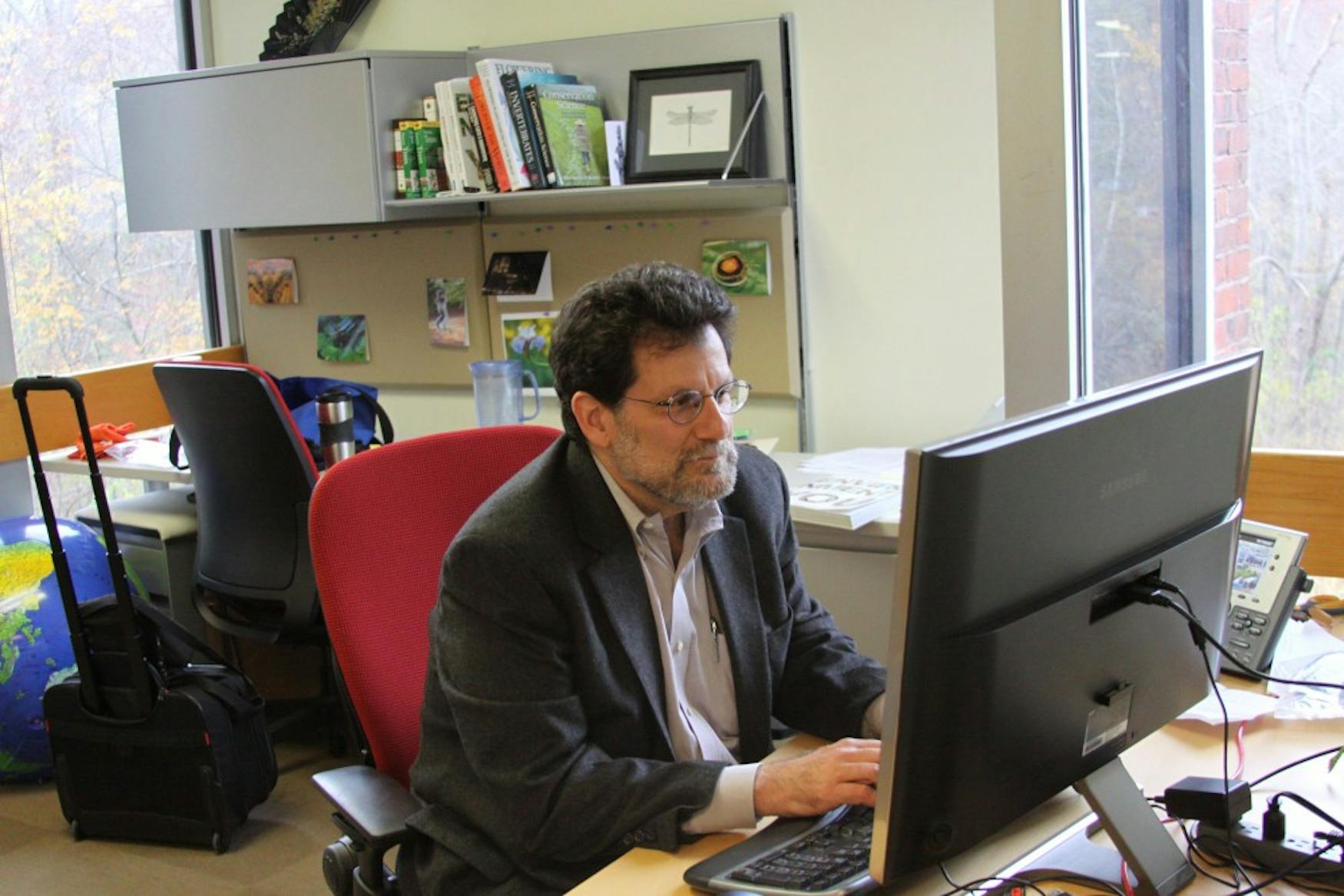Fulfilling the promise
New Center for Teaching and Learning, directed by Prof. Dan Perlman (BIOL), aids faculty in innovating teaching methods
Prof. Dan Perlman’s (BIOL) new office has two desks and a beach ball-sized inflatable globe. Sunlight pours in from the huge windows that line the wall. Small boxes from his recent move are stacked neatly in a corner along a wall that doubles as a dry erase board. There are no cubicles or doors separating Perlman’s working space from that of his colleagues, just a see-through partition that stretches from the floor to the ceiling.
The office is located on the second floor of the Farber Library at the new Center for Teaching and Learning among the many six-feet tall whiteboards and room dividers that make up the spacious headquarters of the new center. Officially open since Oct. 6, the CTL is a new program aimed at providing an informal forum for the exchange of teaching and learning techniques between graduate students, post doctorates and professors.
Perlman, who is the director of the new center, and associate provost of innovation and education as well as a Biology professor and summed up its mission: “We wanted to make a place where faculty, graduate students and post-docs could talk about and learn about teaching and learning,” he said in an interview with the Justice. The CTL’s unofficial motto, a phrase coined by Perlman, is “helping teachers help students learn.”
The center’s roots can be traced to three separate programs and ideas. First, the 2013 plan Fulfilling the Promise, a promise to help solve the current and future issues of higher education, served as a springboard for the CTL. The plan outlined a strategy to implement specific university wide initiatives to help improve the quality of learning at Brandeis. Second, the Committee for the Support of Teaching, a program that culls faculty from across all academic disciplines with the goal of furthering the quality of teaching at Brandeis also acts as a model and supplemental resource to the CTL. The third arm that helped lead to the center’s creation is the Davis Teaching and Learning Fellows, a yearly class of faculty specifically chosen to help further the quality of in-class teaching.
Through workshops, one-on-one assistance, outside speakers and focused faculty meetings—such as “how to teach large classes”—the CTL aims to provide a wide variety of resources for participants to learn from.
More than anything, however, Perlman sees the center as a place to jump-start further discussion among people with a common passion: helping students learn. “The real goal is to get people to talk informally, and not just through the center,” he said.
According to Perlman, many universities across the country with similar programs see involvement mostly from graduate and post doctorate students, with faculty often opting to not take part, a strategy that Perlman finds ineffective. “If you’re not talking or watching, and nobody is watching you, it’s just you in your own little room trying to figure out what mistakes you’ve made and how to fix them,” Perlman said.
Though it has only been open for about four weeks, the CTL has garnered praise among faculty who see the center’s potential. Prof. Jennifer Cleary (THA), a member of the CTL Advisory Committee, is especially looking forward to working with professors across the academic spectrum. “We all have things to offer across disciplines and it is exciting to compare our own best practices, as well as ask each other for advice and support,” she wrote in an email to the Justice.
The CTL works in concert with a number of other school resources to help ensure its effectiveness. Library and Technology Services holds workshops with the center to assist with course design, online interactivity and tech support to help reach basic teaching and learning goals. Other partners include the experiential learning staff and the Committee for the Support of Teaching, the program that CTL partially stems from. The Experiential Learning staff provides the center with access to resources that faculty could apply in their classrooms.
Perhaps the most characteristic feature of the center since its opening has been the “teaching teas” led by Prof. Rachel Woodruff, a Davis Fellow (BIOL). Held every few weeks for an hour, the tea times are informal meetings where faculty can share ideas, questions and thoughts about teaching and learning. The teaching teas, along with the various other resources that run through the center, ultimately rest on the involvement from faculty, as well as grad and post doctorate students.
“We’re providing a space and some cookies,” Perlman said.



Please note All comments are eligible for publication in The Justice.